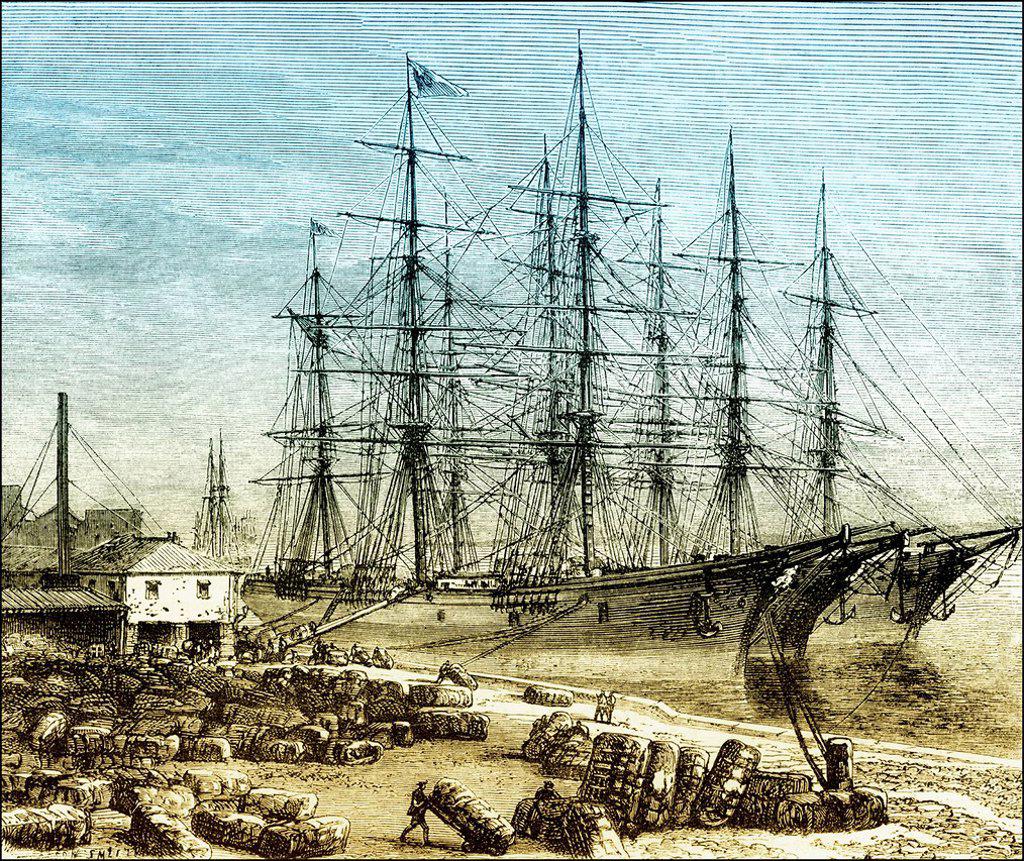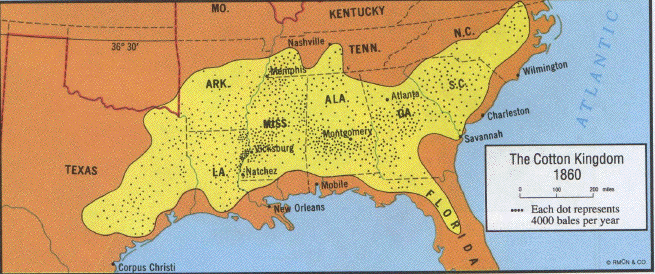To: BroJoeK; WarIsHellAintItYall
Here's a serious question, not a trick question, I don't know the answer and maybe others do: First, is it true that Southern shipbuilding, owning & operating dwindled & died out after, say, 1830? Second, if so, why, and why did not alleged Northern price "gouging" revive Southern shipping? Now this is an interesting point. I wondered this very thing myself. Why couldn't the Southern ship building/shipping industry compete with that of the North? Charleston built ocean going vessels in 1800, so what happened?
I got a somewhat satisfactory answer from WarIsHellAintItYall.
"Some few ships were bought by Southern investors. Operating them at a profit was another issue. Federal mail and cargo contracts enabled northern lines to operate until freight trade grew to support a packet arrangement. After that began, independent owners were few and far between."
He says his ancestors were heavily involved in the North Eastern shipping industry.
He also had this to say.
The plantation owners that could retain ownership and ship independently found themselves in a bind. If they wanted to ship their own cotton to market, the packet ship owner would charge them very high rates that were slightly under the rate of the foreign ship rate, plus the Federal shipping penalty that would be added. The success of the shipping business produced larger and faster transoceanic freight ships. These larger ships required 18 to 22 feet of depth to operate. Sandbars at the mouth of the Mississippi, and particularly at the shallow Charleston harbor presented the merchants with a major obstacle to using the more efficient new shipping. Northern shipbuilders solved this problem with a unique vessel of shallow draft that had an almost perfectly flat bottom. This made it possible to clear the sandbars without getting stuck. An added benefit was that now bales of cotton could fit more easily in the flat-floored hold and carrying capacity was greatly increased. At first, the sailing qualities of such a vessel was doubted, but soon, to the relief of their owners, these flat-bottomed ships proved to have fine sailing qualities. These were the ships used in the coastal trade. With these technical advancements, cotton was loaded onto the coastal packets, shipped to New York via these fast boats, offloaded to warehousing,and shipped out on the large V-bottomed ships that sailed the high seas to Liverpool. All along the way, the middlemen took their cut and New York merchants prospered. Regularly scheduled coastal packet shipping became a very lucrative trade. Stevedores, dock workers, warehouse owners now had lots of work. Insurance agents, bankers, accountants, livery agents, boat builders, riggers,and cargo shippers vastly benefited. Wharf owners stayed busy and Atlantic packets sailed eastward on the “Downhill Passage” with full cargoes and stayed very busy for years. With the control of the transportation trade business being dominated by Northern interests, and now being vastly aided by the Warehousing Act, southern planters began to complain. Many estimated that New York merchants were making 40 cents on every dollar, but being constantly in debt to the New Yorkers, they were hardly in a position to change this state of affairs. The Northern business interests were in full control of the market. However, by the end of the antebellum period, with southern ship building beginning to establish itself, improvements in both New Orleans and Mobile Bay harbors, and South Carolina's self-financed dredging of Charleston arbor, the entire northern shipping combine was about to become vulnerable to direct European trade. Suddenly, secession totally eliminated the transportation of Southern goods. This brought about a 60% drop in volume for all the Northern operators....IMMEDIATELY. Lincoln's office became filled with Governors and businessmen immediately after his inauguration.
He sounds like he knows whereof he speaks.
456 posted on
05/11/2017 2:40:38 PM PDT by
DiogenesLamp
("of parents owing allegiance to no other sovereignty.")
To: DiogenesLamp; x; LS; WarIsHellAintItYall
DiogenesLamp quoting
WarIsHellAintItYall:
"Some few ships were bought by Southern investors.
Operating them at a profit was another issue.
Federal mail and cargo contracts enabled northern lines to operate until freight trade grew to support a packet arrangement.
After that began, independent owners were few and far between." I didn't buy your ideas the first time you posted them, and still don't, because:
- Overall, by 1860 no people in the world were better off than antebellum white Southerners.
With exports valued at $ hundreds of millions per year and typical merchant ships costing $ hundreds of thousands, it seems unlikely that Southerners could not afford to pool their resources and build or purchase merchant ships, if they wanted to.
- Statistics for Civil War blockade runners say about 3,000 total attempts (about two per day) of which 2,400 were successful (80%) and 600 ended in capture or sinking.
However, we are also told the total number captured or sunk was 1,500 ships which must mean some 900 captured or sunk by Union navy, not on blockade runs, but rather in port or elsewhere.
Such numbers imply there were thousands of Southern owned merchant ships in Confederate ports in 1860.
Otherwise, where did they all come from?
- Allegations that Federal mail subsidies kept Northern ships in business don't make sense when you consider only a handful of ships received such subsidies out of the thousands of total ships.
- The packet arrangement described by DiogenesLamp and WarIsHellAintItYall seems OK for Virginia & South Carolina planters, but nearly 80% of cotton shipped from Gulf Coast ports, especially New Orleans and they used something else.
- So the more likely scenario is that Southerners owned a fair share of shipping assets, from river boats to coastal packets to ocean freighters.
However, most cotton planters certainly did not own their own ships and so naturally grumbled at the prices paid for transport.
Now let's say that you are a Southerner who has a river boat which picks up cotton for transport to ocean freighters and your customers complain to you about the high prices you charge, what do you say?
Naturally, you say, "it's not my fault, it's all those big city shippers that charge so much, and I have to make a little bit."
C'est la vie until it becomes C'est la guerre. ![]()
Thousands of Gulf Coast flat boats & steam boats deliver cotton to hundreds of ocean freighters in ports like New Orleans & Mobile:




473 posted on
05/12/2017 4:46:25 AM PDT by
BroJoeK
(a little historical perspective...)
FreeRepublic.com is powered by software copyright 2000-2008 John Robinson



